Reduce and Reuse
What is reduce and reuse?
The most effective way to manage our waste is to not create it in the first place. The act of reducing and reusing means consuming more responsibly and putting fewer materials in our trash, recycling, and compost carts.
Why reduce waste?
- To keep our community clean and beautiful
- To conserve energy and natural resources
- To extend the life of the landfill
- To rely less on volatile recycling markets
- To save money
Often, we think of recycling as the best option for disposing of our waste. But, recycling is not a perfect system. Many common waste items aren’t recyclable locally, such as plastic clamshell containers, and the markets that accept certain items for recycling can change quickly, making participating in recycling sometimes confusing.
Many of us are familiar with the “three Rs” – Reduce, Reuse, Recycle – and how important each practice is in managing our waste and caring for our natural resources. What we may not remember is that the order of those “Rs” is intentional. One of the most environmentally responsible actions we can take as an individual is to reduce our consumption of materials and resources whenever possible, for example saying “No, thank you” when offered a plastic straw or stack of napkins you don’t really need. When that’s not possible, we can reuse items we already have, like a reusable water bottle or grocery bag, or buying used items. When we can’t “Reduce” or “Reuse”, then we utilize our other Curb It programs to responsibly manage our waste.
The Curb It team looks toward the EPA’s Waste Management Hierarchy when planning our programs and initiatives. This hierarchy ranks waste management strategies from most to least environmentally preferred and keeps us working towards the goal of sending less material to landfill.
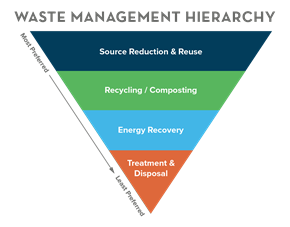
As the Ada County Landfill continues to fill and our recycling markets continue to be volatile, the City of Boise is moving toward a “Reduce and Reuse” mindset and hopes our community will join us in doing what we can to not generate waste in the first place. Reducing the total waste generated in our community is a primary focus of the Climate Action Roadmap.
What is the City of Boise doing?
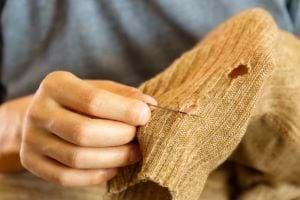 |  | 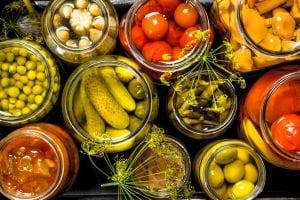 |
Our goal is to become a role model for how organizations can reduce waste. Here are a few things we have completed or are working toward:
- Host community outreach events to show our neighbors how to reduce waste in fun, actionable, and meaningful ways. Recent examples include:
- Repair Cafes in collaboration with JUMP
- Low-waste cooking classes in collaboration with The Idaho Foodbank
- Food Preservation 101 series in collaboration with the University of Idaho Extension Program and Bown Crossing Library
- Work one-on-one with City of Boise facilities to identify opportunities for reducing waste, including City Hall, the Boise Library!, Boise Urban Garden School, Foothills Learning Center, and the Dick Eardley Senior Center
- Perform waste evaluations at local organizations in collaboration with the Curb It Commercial Program
- Offer free compost to community members through the Curb It Compost Program
- Donate used computer equipment to Computers for Kids
- Donate used furniture to local nonprofits
- Offer paper-free hand driers in city facility restrooms
- Offer refillable water stations in city facilities
- Encourage employees to reduce paper use and go digital, when possible
- Develop guidance for event planners, businesses, and construction and demolition projects to reduce their waste
- Collaborate with waste reduction advocates and organizations in the Boise community
How can you become more mindful of the waste you generate?
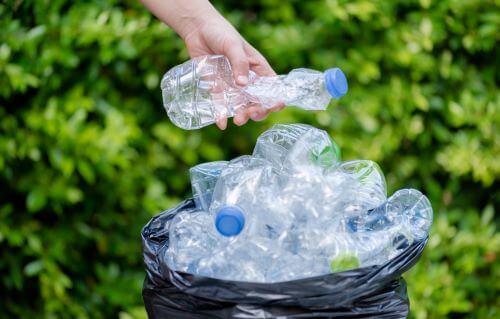 We can all make changes to reduce the amount of waste we create every day. Whether you are new to reducing and reusing or you’re a low waste enthusiast, we have ideas that will inspire you to keep going on your waste reduction journey.
We can all make changes to reduce the amount of waste we create every day. Whether you are new to reducing and reusing or you’re a low waste enthusiast, we have ideas that will inspire you to keep going on your waste reduction journey.
At the most basic level, you can use these questions to guide your decision making when it’s time to purchase or discard some items. The questions below will help you reduce your waste and support the local reuse economy.
When you are done with an item, consider asking yourself the following:
- Can I repair it? – Not only does it save money to repair what you already own, it saves resources. The ifixit website has resources to help you repair many items. Also, check YouTube tutorials to learn how to repair just about anything.
- Can I donate it or give it away? – Contact local charities to see if they will accept items you no longer need. Remember, only donate items in working order and in a condition you’d be willing to buy used.
- Can I sell it? – Offer items for free or for sale online.
When you need or want a new item, consider doing the following:
- Can you borrow or rent it? – Ask your friends or family about borrowing an item. You can also lend many things from Boise libraries other than books – just use your library card! Renting things that you don’t foresee using on a regular basis is another good system of reuse and can be less expensive than purchasing and maintaining them.
- Can you buy it used? – Support the local reuse economy by purchasing used items from online reuse resources or local thrift stores.
- Or do you even need it? – Avoid impulse buying by shopping with a plan in mind, sticking to your budget, or simply waiting a day or two before deciding to purchase something new (you may think of an alternative you already own or realize you don't actually need it).
Where can you go to reduce waste?
Local nonprofit Zero Waste Boise Institute has created a Reuse to Reduce Directory where you can search for recirculation outlets throughout the Treasure Valley. These organizations help to recirculate material goods and keep them out of the landfill. Click here to access the directory.
Note: The City of Boise provides this directory as a public service only and does not endorse, certify, or recommend any businesses or contractors in the directory. This directory is not necessarily comprehensive; the City of Boise has not verified companies’ information, qualifications, experience, or contact information, and makes no claims regarding a business’s qualification, experience, or abilities. This directory may be periodically updated with new businesses or accepted material types. You can contact Zero Waste Boise Institute at zwbi@centurylink.net to suggest edits or additions.
How can you reduce certain types of waste?
Paper
- Junk mail list removal: Many organizations can help you reduce the amount of unwanted mail you receive for free or a small fee.
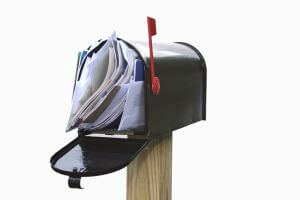
- Paperless billing: Sign up to receive bills in your e-mail to save paper.
- Use paper scraps destined for your recycling bin for making lists. Recycle the paper once you’re done.
- Share documents electronically. If they must be printed, try narrowing document margins, reducing line spacing, or printing double-sided to reduce paper usage.
Disposables
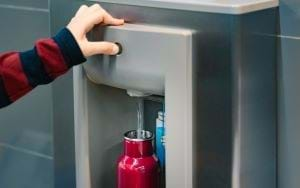
- Use reusables instead of single-use items − Bring your own reusable bag when you go shopping. Use your own water bottle or coffee mug.
- When ordering take-out, let the restaurant know if you don’t need the disposable serve ware and napkins.
- Buy in bulk to reduce packaging waste.
Food

- Plan meals in advance and shop with a grocery list. Focus on recipes that use items you need to consume before they expire or spoil.
- Check out the EPA’s helpful tips to reduce food waste at home.
- Planning a get-together? Use a Guest-imater to calculate how much food you’ll need to prepare for each guest.
- Take the celebration home. Encourage guests to bring containers so they can take leftovers when they leave.
When All Else Fails
Sometimes it isn’t possible to be completely waste-free, so we have created a What Goes Where Guide that tells you where items go. Whether it is in a recycling cart, compost cart or Hefty® ReNew™ orange bag, knowing where items belong will help keep extra waste out of the landfill and prevent contamination in our diversion programs.
© 2024 City of Boise. All rights reserved.
Message Sent Successfully!
Message Failed To Send.
Send a Message to Curb It
Please complete the form below and a member of our Curb It team will follow up with you.
Please note: If you have a question about your bill, please contact Utility Billing Services.